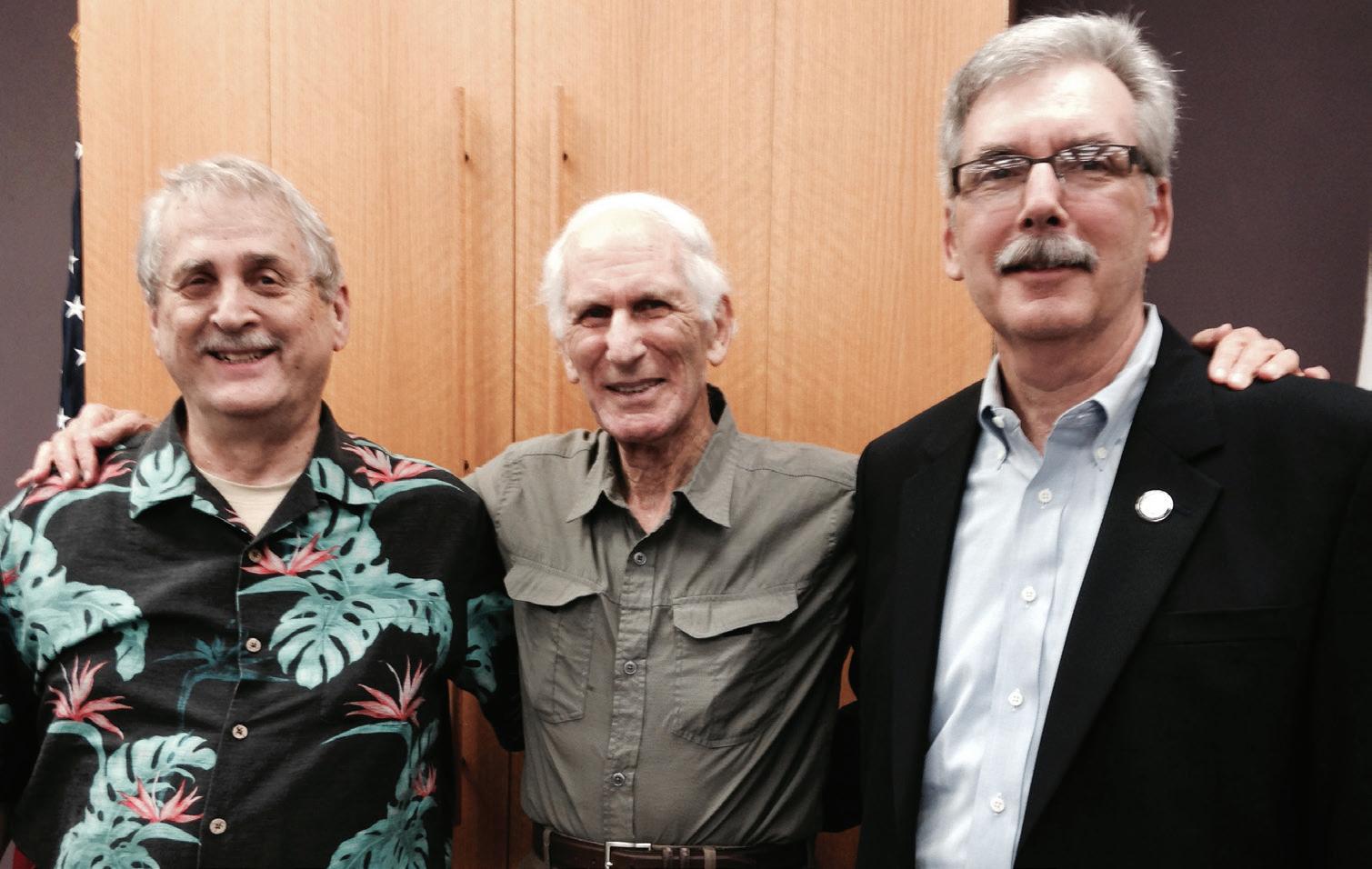
2 minute read
What makes a “good man” a hero of the Capitol siege or a hero of the Holocaust?
By Ida Margolis, GenShoah Chair
For a number of months, I have been writing about “Heroes, Heroines and Helpers,” the GenShoah and Holocaust Museum theme for this season. It was decided that the theme would include not only heroes of WWII and the Holocaust, but heroes of any era, and not only well-known heroes, but lesser known and unsung, quiet heroes.
I have already written about a variety of heroes and heroines, from inspiring Holocaust survivors, to poet and martyr, Hannah Senesh, to “Righteous Among Nations” Master Sergeant Robbie Edmonds. I have heard from kind readers that they have been moved, educated and impressed by many of these stories.
Recently, I was inspired by the actions of one Capitol guard during the siege of the U.S. Capitol on Jan. 6.
You may not have heard the name of the U.S. Capitol police officer, but it is likely that you saw one officer facing a group of protestors, one man who appears to be standing alone before luring the mob away from the Senate floor once the U.S. Capitol Building was breached. You may have viewed the footage from that day in disbelief when protestors, who forced their way into the building, proceeded to the hallway outside the Senate chamber.
You may have seen Eugene Goodman shove a protester who was making his way to the front of the group. You may have seen him pick his baton up off the floor as rioters flooded through the doorway. And you may have wondered why he was alone, why no other police officers were there facing the crowd with him.
I wasn’t quite sure where he was leading the angry-looking mob, but soon I heard that this lone officer led them away from the unguarded door of the Senate. I also heard that his judgment call and heroism likely prevented much bloodshed.
If you try to find out more about Eugene Goodman, you can easily learn he is a U.S. Army veteran who served in Iraq, and that he has served with the U.S. Capitol police about 10 years. You will also find that many people have labeled Eugene Goodman a “true American hero,” and a petition was started to give him the Congressional Medal of Honor.
When reading about his actions, I felt such gratitude and admiration for the courage of this one man. At the same time, I wondered what makes someone take such risks for others?
I have read numerous stories, as I am sure you have, about so many bystanders, and worse, perpetrators during the Holocaust. I am sure that you have also read stories of the heroes of the Holocaust.
Do you think you would have had the courage of an Irena Sendler, who at great personal danger, rescued 2,500 Jewish children in Poland? Most people wouldn’t, and that is understandable.
But could you be like Jan Karski, and join the resistance, reporting to Western Allies about the extermination of European Jews, as he did beginning in 1940?
Or could you be like local resident, Dr. Robert Hillard, who, as a 19-year-old in the U.S. Army right after World War II, wrote letter after letter to try to get help for the displaced persons in terrible conditions at St. Ottilien outside of Munich? Are you willing to do what 91-year-old Hilliard does currently — use your words to fight hate?
As Elie Wiesel said, “There may be times when we may be powerless to prevent injustice, but there must never be a time when we fail to protest.”






